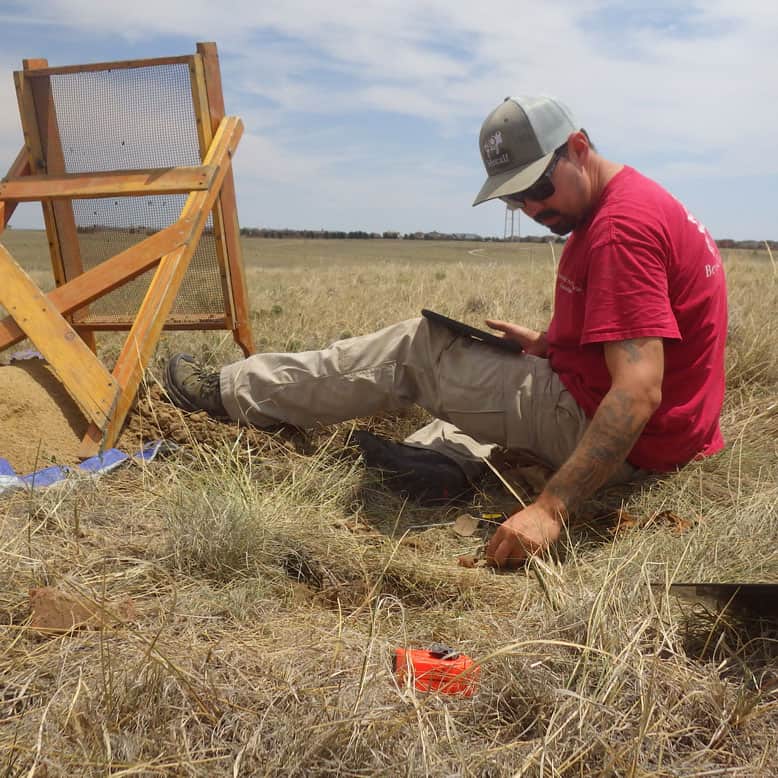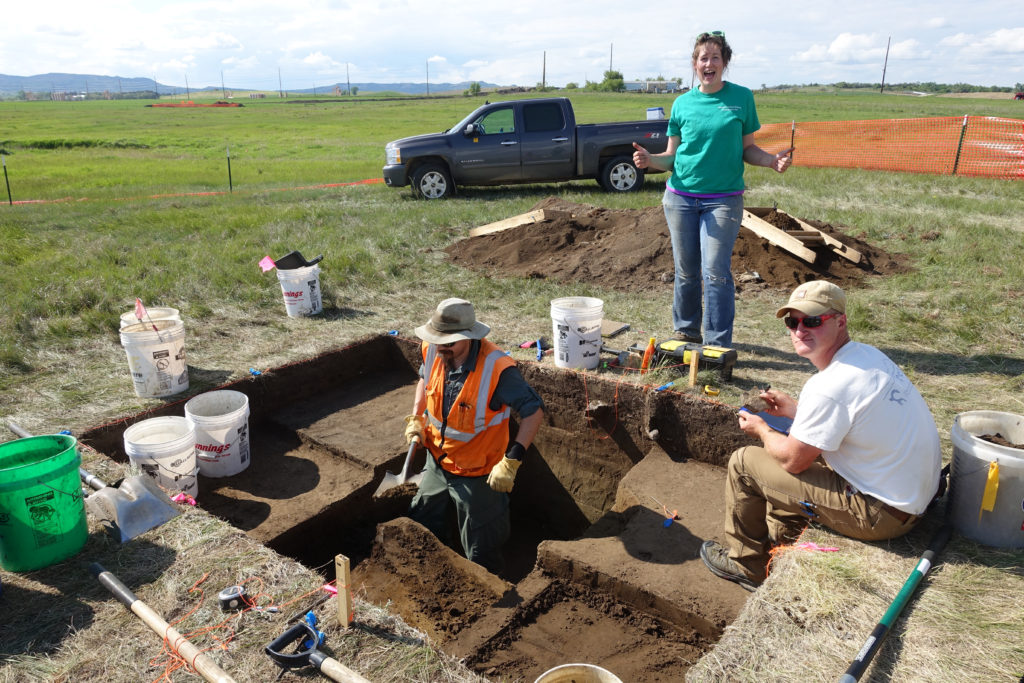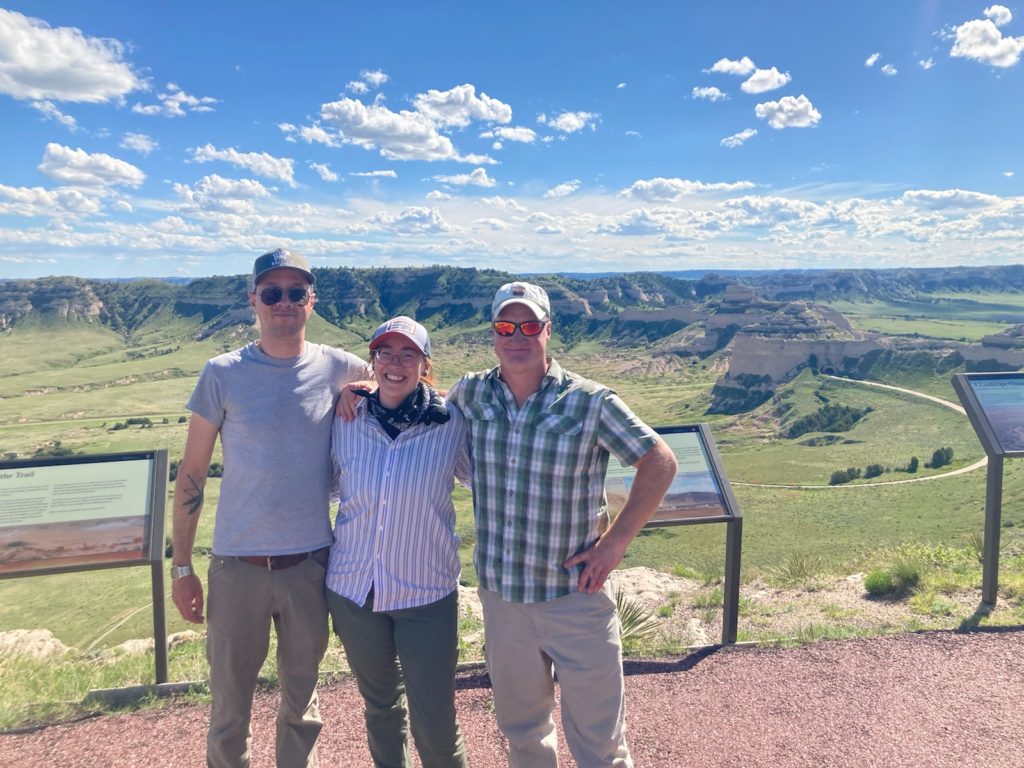Have you ever wanted to dig up dinosaur bones? What about fighting off bad guys like Indiana Jones or Lara Croft? Does treasure hunting sound exciting to you? If you answered ‘yes’ to any of these questions… then this is not the blogpost for you. However, if the thought of putting together stories of past cultures from studying material remains makes you tick, you may have a future in archaeology! To become an archaeologist, it takes a lot more than just good looks, a whip, and highly questionable archaeological practices. It takes years of education, field schools, and dedication to the field. For better understanding of the journey to becoming an archaeologist, three crew members at Metcalf described their experiences.
What Made You Decide to Pursue a Career in Archaeology?
“I first wanted to be an archaeologist because I wanted to travel the world and see different cultures,” said Jessica Ericson, a GIS technician. “I got into GIS because I wanted to develop more as an archaeologist and expand my skill set. GIS is really cool because you can combine so many different modalities into one map or picture.”
For some, they stumbled into archaeology because of required college credits, like Dante Knapp, a geoarchaeologist. “I was completing my Bachelor of Fine Arts with an Anthropology Minor and attended the field school in order to complete the remaining credits needed for the minor. The field school setting was along the Lower Salmon River and I was fortunate enough to work with an amazing group of people who helped foster a love for archaeological/ geoarchaeological fieldwork. When I returned to campus that summer, I immediately changed my major to Anthropology.”

How Did You Become Involved In Your Specialty? What Draws You to That Specialty?
The field of archaeology is wide, meaning everyone has their specialties. Rebekah Schields is an architectural historian. “On the first day of my architectural history class, we discussed how buildings are material culture; how humans design, construct, decorate, and organize our homes reflects many things about us, our culture, and our beliefs,” Rebekah said. “I believe that understanding the history of buildings and community development can help us build better cities that work for everyone! I think it is possible to use history and our understanding of the built environment to address racial, social, and class inequalities that are prevalent in our world.”
What Field Schools Did You Attend?
To become an archaeologist, attending a field school is highly recommended. An archaeological field school trains the next generation of archaeologists. Students learn how to survey and dig, and find out whether they like the life of dirt, being sunburned, and long days. “I attended the 2013 Colorado State University field school with Jason LaBelle in northern Colorado,” said Jessica. “We started with survey out in the plains, then moved up to excavate a site in the intermontane near Jamestown, CO, and finally we ended up at Rollins Pass at about 14,000 ft doing alpine survey and site recording.”
There is also the possibility of participating in field schools outside of the US! “I attended a historic archaeology field school through my undergraduate program at Montana State University. We excavated a portion of a city block in a historic mining community. I also attended a field school near Konya, Turkey, where we excavated a Neolithic tell site,” said Rebekah.

What Challenges Did You Face?
Like any career, there can be some challenges along the way. There are long days in the field for extended periods of time. Applying to graduate school can be a challenge as well with new people and having to learn new methods of studying. “One of the biggest challenges I have faced while I was a student, and continue to face as a working professional, is the work-life balance that comes with extended periods of fieldwork. The profession has allowed me to travel and ‘work’ in some beautiful places with amazing people and it is one of the things I love the most about the job, but it can also be a grind and make it hard to juggle extended periods of fieldwork with your personal life outside of work. Luckily for me, I have an amazing partner, family, and friends who have supported me along the way,” said Dante.

What Advice Can You Give to Future Archaeologists?
Finally, each of the archaeologists had wonderful advice for future archaeologists.
Jessica, GIS technician: Archaeology is a tough field with long days, extreme weather, wild animals, odd people, and back breaking work. My advice to future archeologists is to not try and sugar coat it, but embrace it and have as much fun as possible. Oh also, have really good field gear – the better your gear, the happier you’ll be at the end of a field day.
Rebekah, architectural historian: First, I would encourage those interested in architecture to get out and look at buildings that interest you. What is it about that building that intrigues you? Is it the style or the materials? Are you curious about the people that lived or worked in it? Search out the answers to your questions… Follow your interests and indulge your curiosity! Secondly, I would encourage anyone interested in architectural history to reach out to your city’s Historic Preservation department, a local preservation group or historical society. Historic buildings are a non-renewable resource, once they are demolished, they’re gone forever. Even if you don’t have a professional degree, many organizations would be happy to share information about historic buildings or give guidance on where to look for information.
Dante, geoarchaeologist: As students intending to become future archaeologists I would encourage them all to take as many different archaeology classes as they can. Given our discipline is so broad with numerous areas of specialization, take advantage of learning about these specialties as you are trying to determine what you would like to focus on professionally. Likewise, once you are working professionally, keep your eye out for opportunities to increase your knowledge base. There are numerous workshops and trainings that can be taken as part of ongoing and never ending professional development. Additionally, find opportunities to work with your peers who have specialized in other areas of archaeology than you, they can be a great resource for on-the-job development. Personally, I have learned so much and grown professionally while working with my peers in the field.
